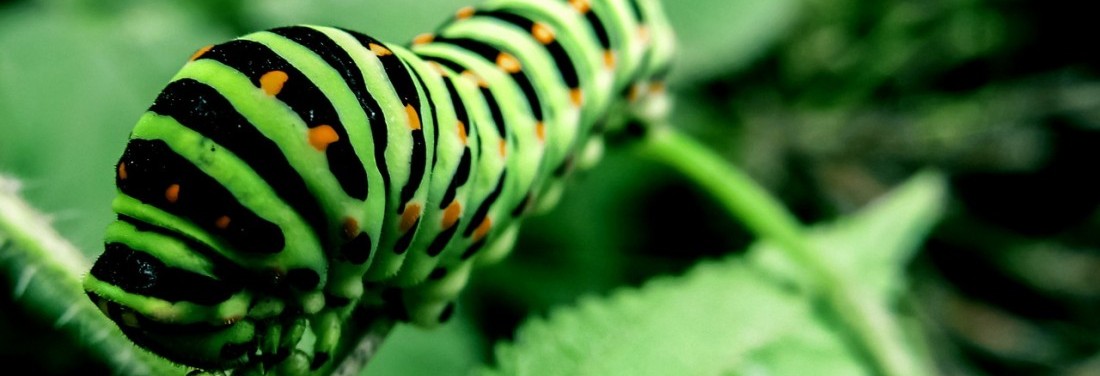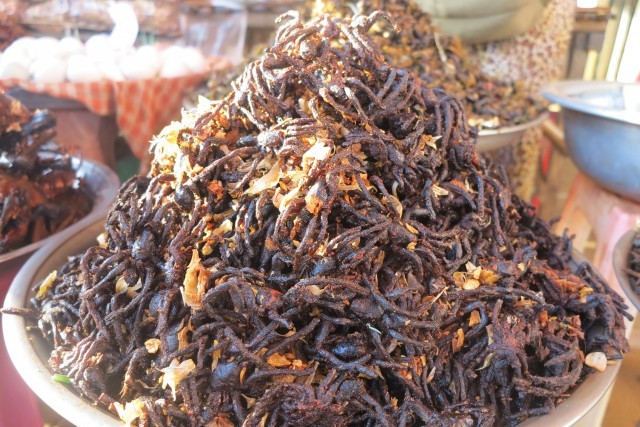Eating Insects for Sustainability
You might have been dared as a child to eat a bug, or perhaps offered some money to swallow a worm or some other equally disgusting insect. Think about that and now think about what it would be like if eating insects was as common as consuming pork chops. With the current rise in population and the effort it takes to raise the necessary food crops to feed every mouth, the idea of eating insects might become a popular notion in the near future.
Are Insects Healthy to Eat?
Many people will wrinkle their lips in disgust at the thought of eating a bug, but in many parts of the world insects are consumed as delicacies. From seasoned crickets to deep fried tarantulas, many countries consider insects as a tasty snack.
In truth they are just as healthy as many other foods we regularly consume. They contain protein, sodium, healthy fats, and in some cases more calories in a smaller amount than more conventional meat sources can provide.
Obviously, those insects with poisonous or venomous glands need to be cleaned and prepped before being offered for consumption, but this is no different than removing the inedible parts from a cow or a pig before converting the meat of their bodies into the wide number of consumables that comprise the everyday diet of the masses.
The Benefits of Eating Insects
Aside from being a viable food source, insects are easy to farm and produce in mass numbers.
Reducing Deforestation
They require less food than other creatures, and as a result can assist in lessening the effect of deforestation as they tend to live within the ecosystem without having to destroy it to survive.
A single cow requires at least 2 acres of grassland to survive, and a farmer with a dozen or more cows will usually clear away 20 or more acres of forest if need be in order to keep his animals fed. Some farms are even larger, meaning that they will consume even more forest in order to produce a greater food supply for the cattle.
Reducing the Carbon Footprint
The carbon footprint created by the production of methane has been growing increasingly worse with each passing year, and livestock have been seen to produce a rather alarming level of methane that is capable of worsening the greenhouse effect that has been discussed throughout the years.
The more methane builds up, the warmer the earth gets. The warmer the earth gets, the more it will affect the overall environment. In short, raising livestock is far more damaging to the environment than raising insects could ever be.
Insects do not create a massive carbon footprint. Their numbers are great enough to provide a food source, but there is little if any waste in their consumption and less land usage for their growth and harvesting. It is safe to state that insects are a viable food resource that could be considered as a substitute for meat in the next several decades if the population continues to grow at its current rate.
Is eating insects vegetarian?
As a food source insects might be acceptable to many, but the view of those that don’t eat meat is a bit divided. Some vegans and vegetarians believe that eating bugs is far better than eating meat considering that the process is far less cruel, and it is a suitable solution to consuming needed protein on a daily basis. Others feel that an animal is an animal no matter how big or small, and would rather push for an all-plant diet that takes a great deal of resources to produce.
Are You Ready to Bite Bugs?
You might have already scrunched up your face once or twice while thinking of eating a bug, and I did when I first found out about it too, but in truth the idea isn’t that far-fetched. The current rise in the world’s population is very real, and as a result the necessary food supply will need to increase to feed the ever-expanding masses. While it might not seem like an idea that will catch on quickly, eating insects is without a doubt an interesting alternative to world hunger.
Guest Blogger Breanne Fleat; is the cricket crunching chief editor, nut butter fanatic, and keen superfood lover at ProteinPromo.com. After looking into more sustainable sources of Protein she discovered Entomophagy and wants to spread the word to everyone who’ll listen – which is why you’re reading this!
Sources:
Edible Insects – Future prospects for food and feed security – FAO
Beetlemania: should we all be eating insects? The Guardian
How cattle ranches are chewing up the Amazon rainforest. GreenPeace
How many acres do you need to raise cattle? Rethink Rural.
Are cows the cause of global warming? Time for change
Entomophagy, Simplified: Why You Should Start Eating Insects Today (With Video). ProteinPromo



Sorry, the comment form is closed at this time.